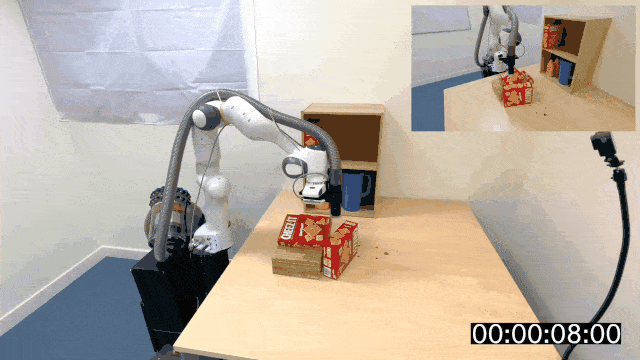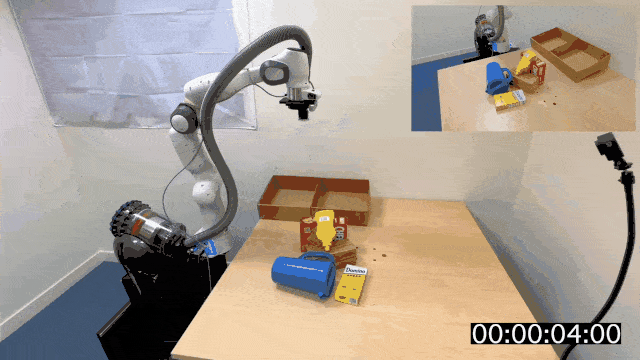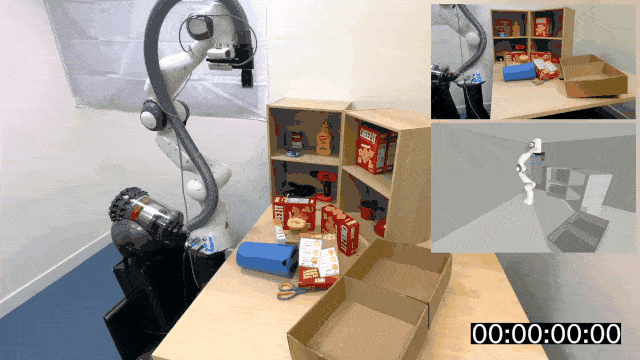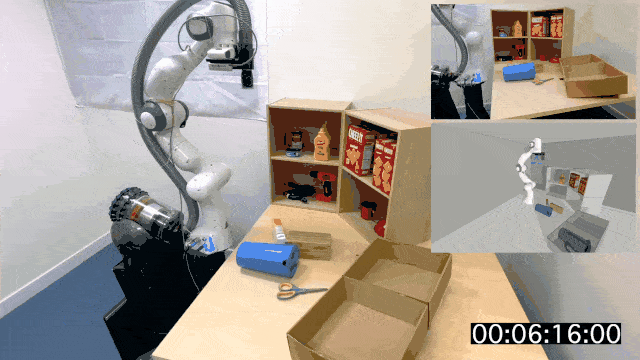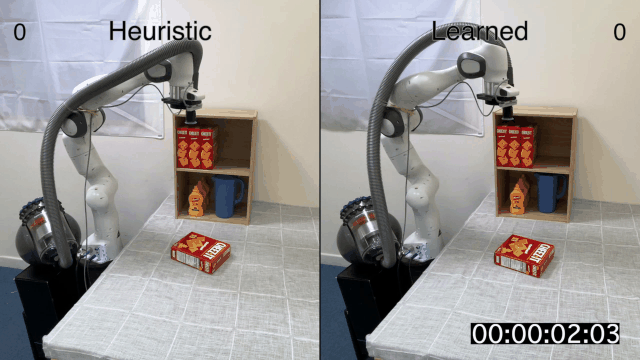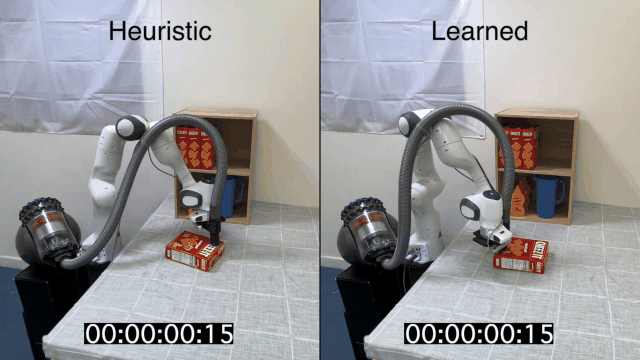ReorientBot
Learning Object Reorientation for Specific-Posed Placement
Robots need the capability of placing objects in arbitrary, specific poses to rearrange the world and achieve various valuable tasks. Object reorientation plays a crucial role in this as objects may not initially be oriented such that the robot can grasp and then immediately place them in a specific goal pose.
In this paper, we present a vision-based manipulation system, ReorientBot, which consists of 1) visual scene understanding with pose estimation and volumetric reconstruction using an onboard RGB-D camera; 2) learned waypoint selection for successful and efficient motion generation for reorientation; 3) traditional motion planning to generate a collision-free trajectory from the selected waypoints. We evaluate our method using the YCB objects in both simulation and the real world, achieving 93% overall success rate, 81% improvement in success rate, and 22% improvement in execution time compared to a heuristic approach.
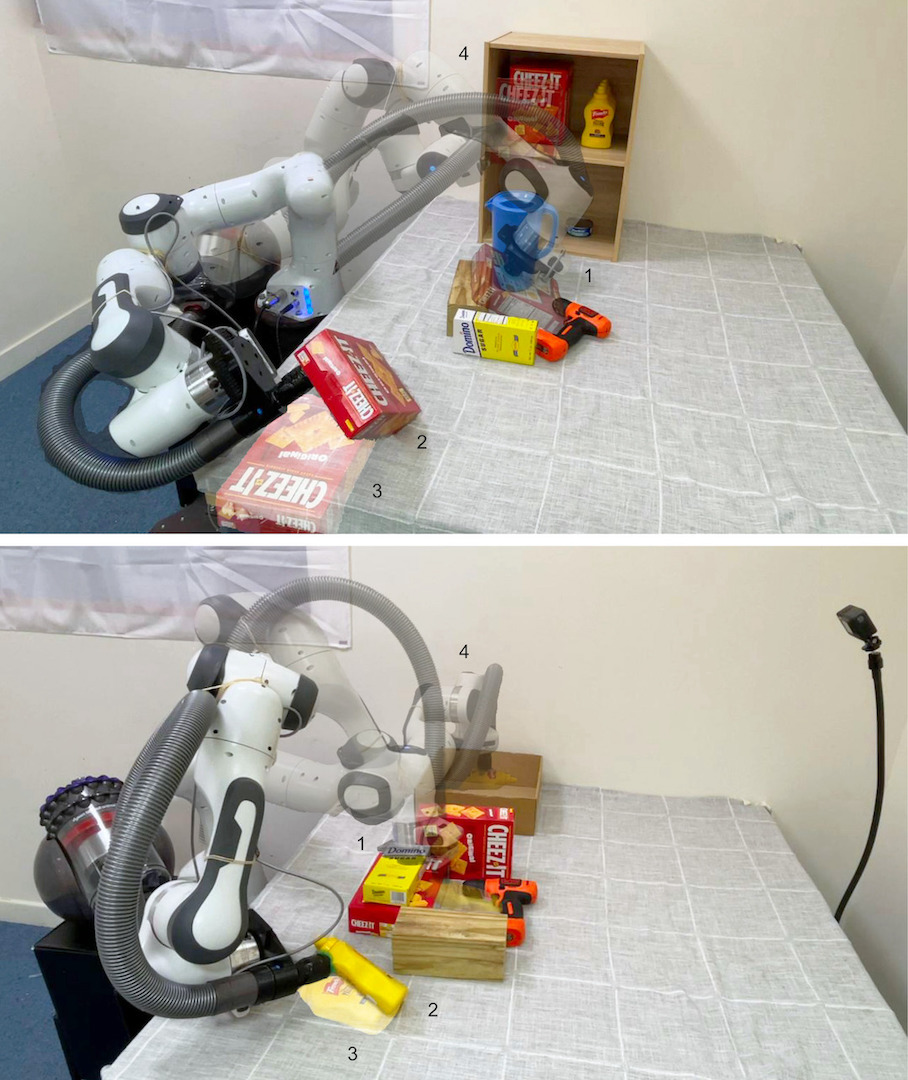
Overview Video (with audio)
System for specific-posed placement
ReorientBot is a hybrid of learned components (, ) and traditional motion planning, consisting of 1) vision-based 6D pose estimation and volumetric reconstruction; 2) motion waypoint generation; 3) trajectory generation with the waypoints.

Training in simulation
We train the learning models in physics simulation using the CAD models of known objects. Object pile configurations are randomly generated, for which the validity of grasp, reorientation, and regrasp are evaluated to generate training labels.
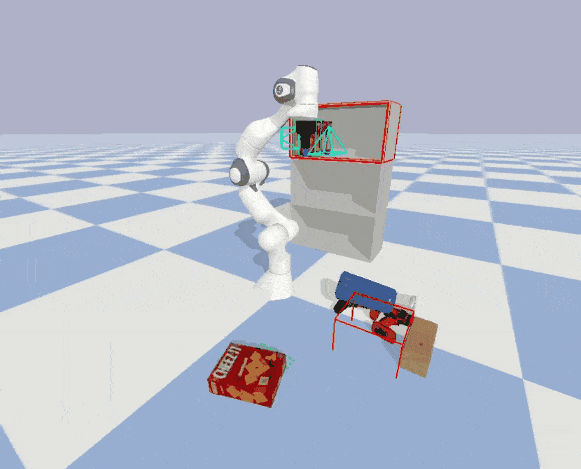

Baseline comparison for object reorientation
Our proposed method, ReorientBot, surpasses a heuristic method that uses object upright poses for reorientation, showing 93% overall success rate, 81% improvement in success rate, and 22% improvement in execution time.
| Method | Success % (reorient)↑ | Success % (place) | Success % (overall) |
|---|---|---|---|
| Heuristic | 71.9 | 81.0 | 58.2 |
| ReorientBot | 97.9 | 95.1 | 93.2 |
| Method | Planning time [s]↓ | Execution time [s]↓ | Trajectory length [rad]↓ |
|---|---|---|---|
| Heuristic | 3.3 | 4.0 | 4.2 |
| ReorientBot | 2.5 | 3.2 | 3.3 |
Real-world experiments
Bibtex
@inproceedings{Wada:etal:ICRA2022b,
title={{ReorientBot}: Learning Object Reorientation for Specific-Posed Placement},
author={Kentaro Wada and Stephen James and Andrew J. Davison},
booktitle={IEEE International Conference on Robotics and Automation (ICRA)},
year={2022},
}
Contact
If you have any questions, please feel free to contact Kentaro Wada.
